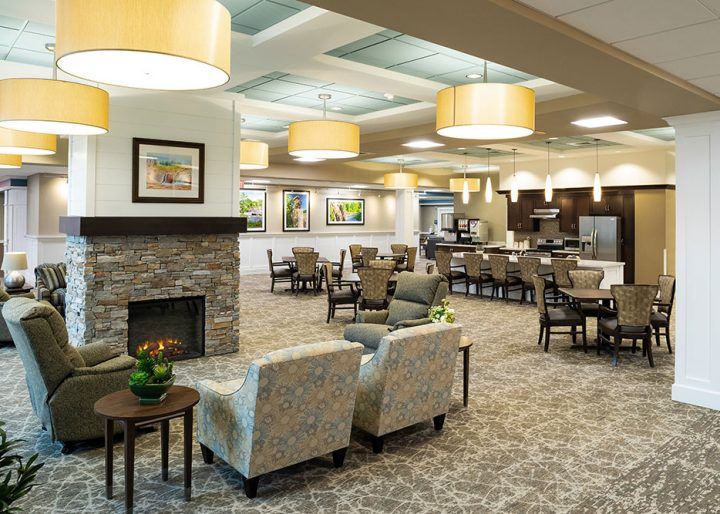Assisted Living: a Compassionate Environment for Seniors With Memory Challenges
Assisted living centers significantly function as caring atmospheres tailored to the distinct needs of seniors facing memory obstacles. By supplying customized care and structured regimens, these neighborhoods not only enhance cognitive function yet additionally foster emotional connections, reducing seclusion among residents. Specialized methods, such as music therapy and memory methods, are employed by trained team to assist in deeper interaction. The performance of these interventions frequently pivots on the involvement of family members in the care procedure, triggering a closer examination of just how this collective effort affects results for both locals and loved ones.
Understanding Memory Difficulties
Recognizing memory challenges is vital for giving effective like elders facing cognitive decline. Memory disabilities, which can manifest as forgetfulness, confusion, or trouble recalling recent occasions, are often symptoms of problems such as Alzheimer's condition or various other forms of mental deterioration. These obstacles can considerably affect an elderly's capacity to execute daily tasks, preserve social connections, and take care of individual safety and security.
Recognizing the different phases of cognitive decrease is critical for caretakers and healthcare professionals. Early-stage memory loss may involve mild forgetfulness, while mid-stage decline can result in much more pronounced disorientation and complication. In late-stage mental deterioration, individuals might shed the capacity to connect properly, calling for comprehensive support and understanding from caretakers.
Moreover, memory challenges can evoke a variety of emotional reactions, including aggravation, stress and anxiety, and anxiety. This necessitates a compassionate approach to care that focuses on the psychological wellness of the person. Understanding the intricacies of memory obstacles makes it possible for caregivers to produce tailored strategies that boost interaction, promote engagement, and provide a feeling of protection. Eventually, a deep understanding of these difficulties is fundamental to supplying thoughtful and efficient take care of elders encountering cognitive decline.
Advantages of Assisted Living
Helped living deals many advantages for elders with memory difficulties, providing an encouraging atmosphere that fosters self-reliance while ensuring safety and security and treatment. Among the primary benefits is the round-the-clock supervision and help available, which aids reduce threats related to memory-related concerns. Assisted Living. This consistent assistance enables seniors to engage in day-to-day activities without the anxiety of mishaps or complication
Additionally, helped living centers commonly provide structured regimens that can enhance cognitive function and security. These routines assist homeowners feel even more secure and decrease anxiousness, as they know what to anticipate each day. Social interaction is one more substantial benefit, as these atmospheres motivate connections among citizens, advertising emotional wellness and decreasing sensations of isolation.
Additionally, aided living staff are trained to acknowledge the one-of-a-kind needs of senior citizens with memory obstacles, permitting personalized care strategies that resolve individual choices and demands. This customized method not only improves the top quality of treatment yet also empowers seniors to preserve a sense of autonomy. Generally, assisted living offers as a thoughtful remedy, balancing the need for support with the desire for independence in the lives of senior citizens dealing with memory difficulties.
Specialized Care Approaches
Implementing specialized treatment strategies is necessary for successfully sustaining elders with memory difficulties. One fundamental strategy is person-centered treatment, which highlights the significance of understanding each resident's life background, preferences, and values.
An additional important technique involves making use of cognitive stimulation treatments. Tasks created to improve memory recall, encourage social communication, and promote imagination can significantly influence locals' overall wellness. Techniques such as memory therapy leverage individual memories to spark discussion and connection, while songs therapy can stimulate emotions and memories, giving comfort.

Creating a Helpful Community
(Dementia Care Charlotte)A helpful area plays a vital role in improving the lives of seniors with memory difficulties. Such a community promotes an environment of understanding, empathy, and inspiration, which is important for people facing cognitive problems. By creating a network of support, aided living centers can substantially boost the quality of life for homeowners.
Central to a supportive neighborhood is the visibility of trained personnel that are sensitive to the distinct demands of seniors with memory impairments. These experts not just provide vital care however also engage citizens in purposeful activities that stimulate cognitive function and advertise social communication. Programs that urge participation in group exercises, arts and crafts, or memory video games can boost both physical and psychological well-being.
Furthermore, a helpful community promotes strong links amongst homeowners. Encouraging friendships and peer support assists to minimize sensations of seclusion and cultivates a feeling of belonging. Normal gatherings and communal dining experiences can even more enhance these bonds, producing an ambience where elders really feel valued and recognized.
Involving Family Members in Treatment
Involving family members in the treatment procedure is crucial for providing comprehensive support to elders with memory obstacles. Member of the family usually work as crucial advocates, providing insights into the person's choices, background, and routines that can enhance customized care. By including them in conversations and treatment preparation, helped living facilities can create an extra all natural technique that resonates with the local's needs.

Motivating families to join treatment not only boosts the well-being of the elderly but likewise provides emotional assistance to member of the family. Entailing households in treatment cultivates a sense of neighborhood and belonging, making sure that seniors really feel attached to their loved ones. Inevitably, a collaborative method to care improves the lives of both residents and their households, developing a compassionate and helpful setting that promotes dignity and regard.
Verdict
Finally, helped living functions as a vital resource for senior citizens experiencing memory Dementia Care Charlotte obstacles, providing customized treatment customized to individual needs. The structured regimens and interesting tasks promote cognitive function and emotional wellness, promoting a feeling of belonging. Specialized treatment approaches, such as reminiscence and music treatment, improve interaction and link. By entailing family members in the care process, assisted living creates a detailed assistance network, inevitably improving the lives of homeowners and their enjoyed ones.